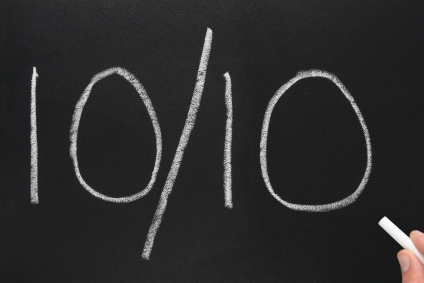 There was a blog post at BNET.com last month that reinforced some of the resume advice we offer at Pongo, that your resume should be error-free. But the comments on the post demonstrated that the "perfect" resume is a subjective judgment. For example, one hiring manager may disqualify you over a misspelled word, while another may not even notice, and if he does, may not care.
There was a blog post at BNET.com last month that reinforced some of the resume advice we offer at Pongo, that your resume should be error-free. But the comments on the post demonstrated that the "perfect" resume is a subjective judgment. For example, one hiring manager may disqualify you over a misspelled word, while another may not even notice, and if he does, may not care.
The BNET post, Three Reasons Why Your Resume Ends Up in the Discard Pile, alluded to a post at Harvard Business Publishing by David Silverman that touched upon, among other things, the width of the dashes you use.
Apparently, he's not kidding. The BNET post quotes Silverman:
“Many people … don’t notice that their dashes are all different lengths. Does this mean they are more or less qualified to be a project planner? I don’t know, but it’s easy for me to say, ‘If you don’t know that your own résumé is inconsistent, how can you be expected to supervise a multi-million dollar project?’”
He also stresses the importance of eradicating blunders that he believes just about any hiring manager sees as important: consistent formatting (e.g., lining up dates and headings), the use of strong verbs to describe your accomplishments and skills, and rewriting your resume for each job you apply to.
The post launched a torrent of comments, which ranged from agreement on at least some of Silverman's points to unbridled sarcasm. ("I fully understand and respect your Solomonic deliberation to not bring me in to meet you and your team … based on a sheet of paper and some random grammatical nuances that you prefer or dislike," Brett11 wrote.)
Hiring managers are human beings and, as such, base their judgments on personal likes and dislikes that won't be the same as everyone else's. In the end, what really matters is whether you have the skills to do the job and the personality that will mesh well with your new coworkers. Your resume is the main tool that can land you the interview, and it's the first impression the hiring manager gets about how well you communicate and how closely you pay attention to detail. But is it fair that one little resume error — real or perceived — disqualifies you?
RELATED LINKS
Good and Bad Resumes: Want to See the Difference?
Check Your Resume Before You Send It
I Sent My Resume with a Typo! Should I Send a New One?
Resume Buzz-Kill: Dump the Business Cliches
Ready To Jump Start Your Job Search?
